CAREER MATTERS
SAFETY first
ALEX FOX explores the hidden dangers of isolation in the nail industry: from stalking to lone working, burglary & verbal abuse
According to the Office for National Statistics, 53,435 beauty and hairdressing businesses were operating in the UK as of March 2022. While there is no exact figure for the number of nail technicians in the UK, estimates suggest that tens of thousands have chosen this career path, and there are over 17,000 businesses employing nail professionals in salons, department stores and hotels.
Many nail techs and beauty therapists opt to work from home or on a mobile basis, encouraged by financial independence and flexibility. These setups allow them to be their own boss, choose their hours and avoid salon politics. What’s more, home-based and mobile pros can spend more time with family, dictate their clientele and benefit from limited workplace distractions.
However, working alone can present a number of risks. The British Crime Survey estimates that 6.8 million people in the UK are lone workers, with as many as 150 each day facing physical or verbal attacks. More specifically, between 123 and 205 physical assaults occur each day, totalling between 44,850 and 74,750 incidents per year. Instances of verbal abuse range from 159 to 266 daily. Additionally, the Health and Safety Executive (HSE) reported 649,000 cases of workplace violence in 2022/23, though many incidents remain unreported. The beauty industry is a vibrant, creative space that thrives on personal connection and transformation. However, beauty professionals – especially those working alone in salons, from home or providing mobile services – face heightened risks of physical and verbal attacks.
“Let’s normalise self-protection, set clear boundaries and create an industry where everyone feels safe to work.”
Danielle Brindley
While the onus should never be on those at risk, proactive measures can help mitigate danger. From self-defence training and de-escalation techniques to lone worker safety technology, employers and individuals must prioritise safety and consider tools and strategies for protection. Before exploring how to respond to attacks, it’s crucial to understand who is most at risk and the measures available to safeguard those working alone. Whether through discreet alarm systems, SOS-enabled mobile apps or simple precautions like avoiding isolated interactions, taking action can mean the difference between vulnerability and security in an increasingly unpredictable world.
SAFETY IN THE NAIL INDUSTRY:
dealing with difficult clients, personal security & best practices
By Marian Newman BEM, award-winning industry veteran
@mariannewman
“As co-founder of The Federation of Nail Professionals (FNP), I’ve seen the challenges that nail professionals – especially mobile techs and home-based salon owners – face when it comes to safety and client behaviour. While the beauty industry is built on trust and personal connection, it’s essential to set clear boundaries and take precautions to protect yourself. “Handling verbally abusive, bullying or non-paying clients is an unfortunate reality for many beauty sector workers. It’s crucial to stay calm, professional and assertive when faced with these situations.
“If a client becomes aggressive or behaves inappropriately, refuse to continue the service immediately. Your safety comes first. If you are faced with non-payment, calmly explain that you will report the matter to the police. Your consultation with the client would have captured their name and address, and you can use these to commence legal action through the Small Claims Court. “If a client complains about their nails, take clear photos of your work before they leave. If they refuse to let you, ask them to provide photos and highlight what they are unhappy with.”
“Regularly review and update your safety protocols. Whether it’s your online security measures or physical safety at work, staying proactive can prevent potential risks.”
Speaking from experience: a challenging environment
By Elizabeth Jones of Nail Art by Elizabeth, Stretton-on-Dunsmore, Warwickshire
@nailartbyelizabeth91
“Before lockdown, I was a mobile nail tech, working hard to build a sizable client base by taking every booking I could. As an introvert, I often felt anxious in new environments, but tried to overcome this feeling because I wanted to grow my business. I was contacted by a woman who requested a full set of nail extensions for herself and a friend. I accepted the appointment and travelled to the house. “The area felt unwelcoming, but I told myself to be professional and not judge too quickly. I knocked, stepped inside and was immediately hit by an overwhelming smell: a mix of cigarettes, cannabis, dog mess and general filth. The woman told me that I would need to work at the coffee table, and I looked down to see beer cans and overflowing ashtrays. I kept my composure and began setting up.”
Red flags
“During the appointment, a child aged around three or four walked into the room and was covered in bruises. Her hair was matted and she looked like she hadn’t had a bath in weeks. Before I could react, the woman explained that the bruises were from a fall down the stairs and that social services was already involved due to ‘previous situations’. As I worked, she casually mentioned that her partner had just been released from prison, along with his former cellmate, who was living with them. I felt anxious and uncomfortable with the situation.”
The final straw
“As I continued the appointment, I noticed a starving dog in a crate, desperately trying to eat from a bag of rubbish that had been torn open. Contents from the bin were scattered everywhere. As I was finishing the second set of nails, the little girl walked up to me holding a used syringe. Panic set in. I quickly packed up my kit, made an excuse and left the premises.”
Taking action
“When I got home, I immediately showered and washed my clothes. I reported the woman to both social services and the RSPCA and four weeks later, I received a furious message from her, complaining that some of her nails had snapped. She demanded a refund and when I politely refused, she threatened to ruin my business online by posting negative reviews. Unfortunately, that was the breaking point for my mobile career. I now run a home salon and have never been happier. Most importantly, I feel at peace knowing that I spoke up when it mattered.”
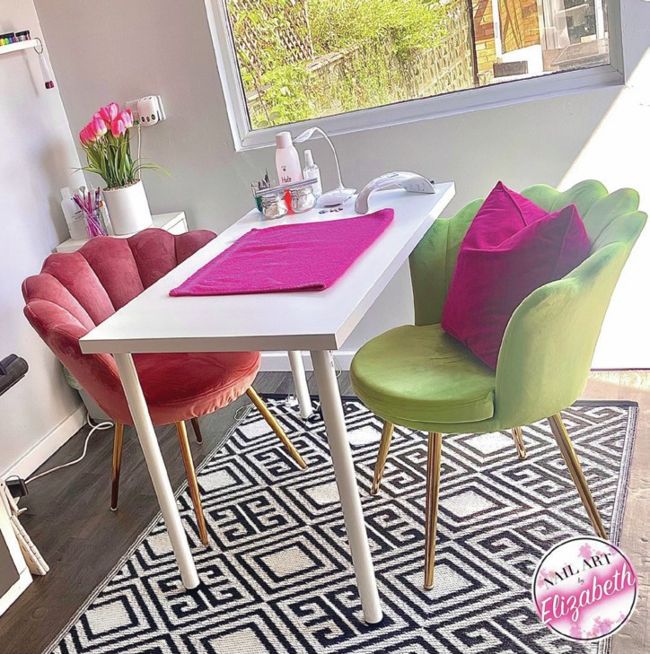
Elizabeth’s home salon.
“If someone makes you feel uncomfortable, block their messages and calls. Losing a potential client is better than dealing with an abusive one, as if you do not address the issue, it can escalate into persistent harassment.”
STAYING SAFE ON SOCIAL MEDIA
Social media has revolutionised the beauty industry, allowing professionals to showcase their skills and attract clients. However, it also increases exposure and vulnerability. “In today’s digital age, social media is an essential business tool,” shares Marian Newman BEM. “However, it can also expose professionals to stalking and harassment.”
Explore risks associated with the use of social media platforms for business needs, and how to mitigate them:
• Oversharing personal information.
Posting live updates, location tags or behind-the-scenes content can unintentionally reveal sensitive details about your schedule, workspace or home. Never share your phone number or home address on social media. Once public, this information can be exploited, leading to unwanted visits or stalking.

Andreea Simona Ignat
“If you have a personal social media profile, it’s best not to post work-related content on it, as it can be easily traced back to you,” shares Andreea Simona Ignat, nail artist, educator & founder of Andreea Nails Salon & Academy, London. “When sharing stories from outside my house, I make sure to hide car number plates and street names to protect my privacy.”
• Harassment through online channels.
Beauty professionals may receive inappropriate messages or calls from individuals misusing contact details shared online. If someone makes you feel uncomfortable, block their messages and calls. Losing a potential client is better than dealing with an abusive one, as if you do not address the issue, it can escalate into persistent harassment.
• Privacy breaches.
“It is imperative to use strong passwords for all business accounts, including email, social media and financial platforms,” shares industry expert, educator & competition judge, Jacqui O’Sullivan. “Avoid reusing passwords and create ones that are unique and complex, to prevent data breaches. To further safeguard your accounts, enable two-factor authentication wherever possible. This adds an extra layer of protection, making it harder for unauthorised individuals to access your information.”
Speaking from experience: a call for safety
By Danielle Brindley, multi award-winning nail artist, home salon owner & Glitterbels educator
@missbrinnynailartist
“As beauty professionals, we are encouraged to be visible. We show our faces on social media, introduce ourselves as relatable and personable, and share our work addresses and contact details to attract clients. This makes us all vulnerable. We are also urged to be inclusive, offering services to all genders without bias. However, working alone, handling cash and keeping unsociable hours can leave us exposed to theft, harassment and assault.
“I had to take out a Sexual Harm Prevention Order against a client who booked a manicure prior to his wedding. He was able to track my movements because he knew my working hours, which were advertised online. He could drive past my workplace, check if the lights were on and determine whether I was inside. This realisation was terrifying. “I don’t share this to fearmonger, but rather to highlight the importance of being proactive. We must prioritise our safety, and there are simple but effective measures you can take to protect yourself:
• Lock doors when working alone.
• Tell someone when you are due home.
• Enable emergency call settings on your phone.
• Allow location tracking during working hours.
• Carry personal safety alarms.
• Use safety apps designed for lone workers.
“Many of us believe, ‘it won’t happen to me’, but the reality is: it does happen – and far too often. I don’t live in a ‘bad area’, yet two local salon workers have been held at knifepoint. Since those attacks, they have implemented safety measures – but why do we wait until something happens before we act?
“While working in a hair salon, a colleague confided in me about an uncomfortable and distressing experience. She had been cutting a male client’s hair when she realised that he was touching himself under the cape. She was alone and too afraid to confront him, so she had to ignore it until he left. This should never be acceptable in any profession. We must do more to protect ourselves and each other. Salons, industry organisations and beauty professionals need to have conversations about safety – and implement changes before incidents occur. Let’s normalise self-protection, set clear boundaries and create an industry where everyone feels safe to work. It’s time we act before something happens – not after.”
SAFETY TIPS FOR MOBILE TECHS
Mobile working affords flexibility and independence. However, it also introduces risks that can be underestimated. For example, without colleagues or nearby support, mobile techs are unfortunately more vulnerable to physical threats, difficult clients and emergencies. They frequently have to travel to unfamiliar locations, often during unsocial hours, increasing the risk of unsafe situations.
Entering a client’s home alone can increase a tech’s vulnerability, especially if the environment or people present are unexpected or threatening. Navigating poorly lit streets, unsafe parking areas or mechanical breakdowns add more layers of risk.
Practical pointers to support personal safety:
• Vet your clients. Require new clients to provide ID or verified contact details when booking, and trust your instincts. Decline appointments that feel unsafe.
• Share your location. Always leave details of your appointment, including the address and expected end time, with a trusted person, such as a spouse, parent or friend.
• Plan carefully. Look at your travel route before you leave, park in well-lit areas and keep safety items in the boot of your car, such as a flashlight, spare tyre, first aid kit, water and a blanket. Ensure your mobile phone has a good amount of battery charge.
• Keep essentials on your person: Your keys, phone and purse should be in your pockets throughout the appointment. If the situation becomes uncomfortable or threatening, leave immediately. You can return for your equipment when it is safe to do so.
• Handle cash securely. Encourage digital payments to minimise cash transactions, and avoid counting money in front of clients.
• Check-in system: Arrange to text or call a trusted person when you’ve finished an appointment. If you haven’t checked in within 10 minutes, they should follow up.
• Personal safety devices: Consider carrying a personal attack alarm, which is an affordable, loud device that can often frighten away potential attackers.
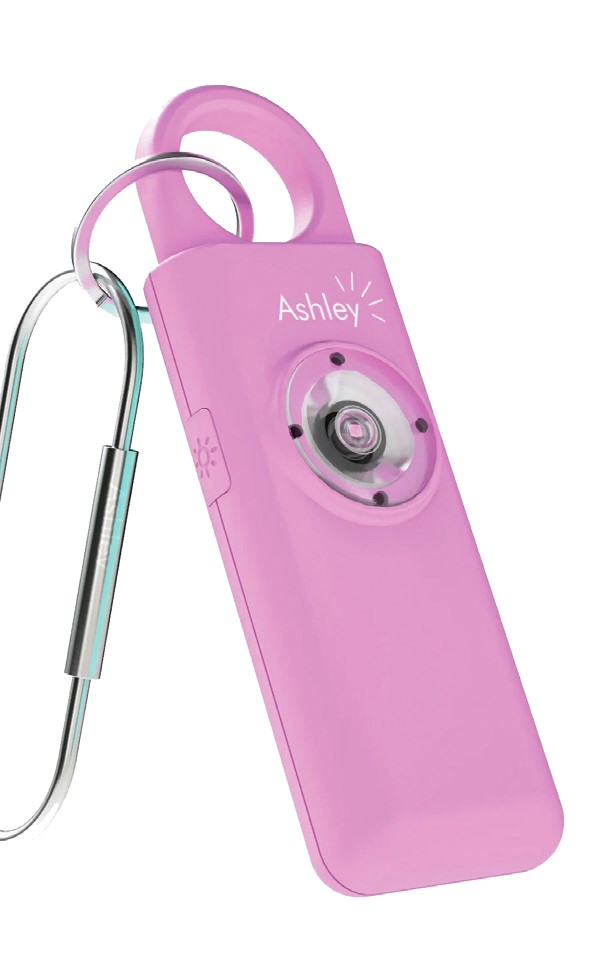
The Ashley Alarm 2 in Candy Pink
£29.95 inc VAT www.empoweredbyashley.com This rechargeable personal safety alarm features a powerful siren and flashing strobe light to deter threats. A torch feature can also be enabled by holding the button on the side.
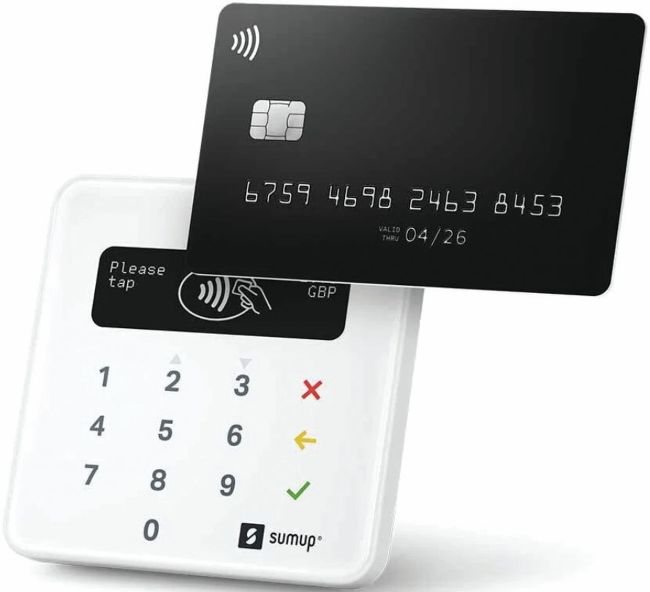
SumUp UK Card Reader
£41.66 + VAT www.salon-services.com Accept payments at a flat rate of 1.69%, with no contract, no monthly fees and access earnings the next working day. SumUp also allows you to send invoices or links to your customers to accept remote payments.
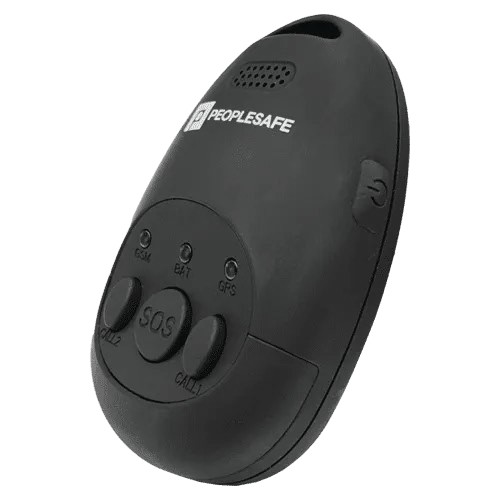
MySOS Lone Worker Device
£POA www.peoplesafe.co.uk When activated, this versatile personal safety alarm connects to a 24/7 alarm receiving centre. A Peoplesafe controller can then view your location via GPS. They will tune into the audio to assess risk and obtain a fast response from emergency services if required. “Entering a client’s home alone can leave techs vulnerable, especially if the environment or people present are unexpected or threatening.”
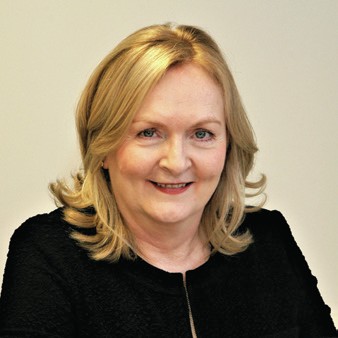
Liz McKeon
What to do if you feel unsafe
“Before accepting a new client, conduct a risk assessment and gather details like the client’s name, address, contact information and payment method,” shares Liz McKeon, salon business expert & founder of the International Salon Business School. “This helps verify their identity and prevent potential issues.
“If you feel threatened, leave the premises immediately and contact the police. Reporting any incidents ensures proper documentation and action if needed. Security training should be part of a beauty professional’s routine, with regular refreshers to reinforce best practices. By taking these precautions, pros can work with confidence, knowing they have measures in place to protect their safety.”
SAFETY TIPS FOR HOME SALON OWNERS
“If you are welcoming clients into your home, there are simple steps you can take to enhance your safety,” shares Millie Kendall OBE, CEO of the British Beauty Council. “Introduce yourself to your neighbours and tell them about your job. Share that Millie Kendall OBE they may witness clients arriving at certain times of the week, and when you do not work. This encourages them to note anything unusual.”
Key considerations:
• Seating arrangements: Always ensure you are seated closer to the door than the client, so you have a clear exit route if needed.
• Neighbourhood watch: Consider participating in a neighbourhood watch scheme, and maintain good relationships with neighbours who can help if required.
• Install cameras: Having a home security camera system can deter unwanted behaviour.
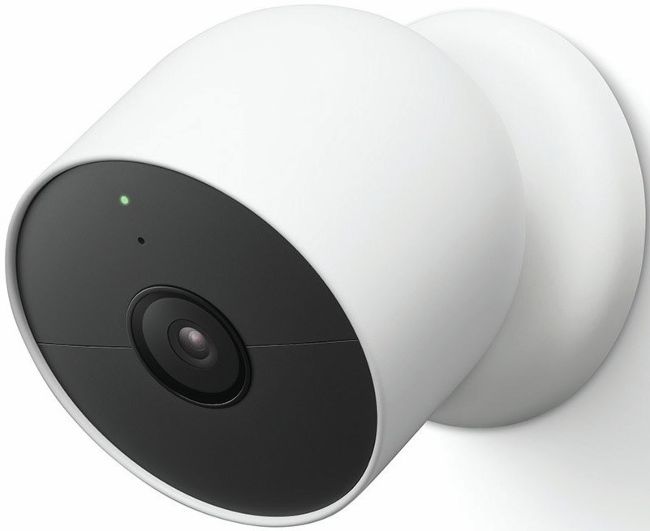
Google Nest Cam
£179.99 inc VAT store.google.com This battery-powered indoor and outdoor security camera is rechargeable, and has built-in intelligence to alert you to arrivals. It has a 24/7 live view and three hours of event-based recording, plus continuous video history is available with a Nest Aware Plus subscription. "If you feel uncomfortable during an appointment, stop the treatment and politely ask the client to leave. If the situation escalates, call emergency services.”
Home salon safety strategies
By Dani Bailey, award-winning nail pro & home salon owner
@danibaileyoficial
“Working from home can make you feel vulnerable, so always keep a phone within reach in case of an emergency, and consider investing in a security camera. If you feel uncomfortable during an appointment, stop the treatment and politely ask the client to leave. If the situation escalates, call emergency services. “While it’s important to engage with clients online, I’m mindful about what I share. I avoid posting about my personal life, my children’s faces and geotagging when I’m with them. I’ve had people show up at my door at random hours asking for nail appointments, because they found my address on Google. This has been unsettling. To prevent this, clearly state in your marketing materials that your home salon operates by appointment only.
“During a Covid-19 lockdown, a woman messaged me demanding a nail appointment. I explained that I wasn’t working due to restrictions, but she called me a liar and threatened to ‘kick my door in’, claiming she knew I was accepting clients. It transpired that her boyfriend was working at my neighbour’s house and had seen me at my nail desk hosting an online class, so had assumed I was working. It was quite scary and was reported to the police.”

Sophie Donaldson
Opening dialogue
“When a client contacts me, I always ask how they found my number and inform them that I value kindness and respect in my home salon,” explains Sophie
Donaldson of Sophie’s Cosy Corner, Kent. “If they reach out via social media, I search for their account to determine whether it seems genuine. Suspicious accounts with no followers or little activity are red flags.
“In my 20 years in the industry, I’ve only encountered a few ‘colourful characters’, but I love the individuality each client brings. I enjoy working from home and recommend it to others, but building a supportive community is vital, whether online or in-person.”

Maria Bourne
Safety steps
“I have a log cabin in my back garden, and work alone from it for much of the day,” shares Maria Bourne of Bourne Beauty, Derbyshire. “To ensure my safety, I’ve installed a Ring doorbell at both the front door of my house, and the door of the log cabin. This setup helps me feel secure, especially when I’m alone in the evenings and it’s dark outside. The doorbell records, so if someone arrives who shouldn’t be there, or if there’s a burglary attempt, I’ll have evidence to provide to the police.”
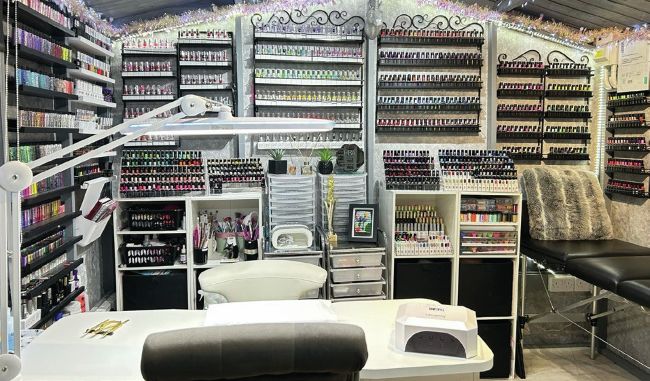
Maria Bourne’s cabin nail salon.
SAFETY TIPS FOR SALON TEAMS
“Handling situations where clients are verbally abusive, refuse to pay for their treatments or exhibit bullying behaviour is challenging,” shares Andreea Simona Ignat. “During my career as a nail tech, I’ve encountered both difficult and aggressive clients. For difficult clients, I make an effort to listen to what they want, give them options and try to find common ground. However, if a client is aggressive, I refuse to offer them future appointments. My priority is always my safety.”
“In challenging situations, your safety and wellbeing must come first,” agrees Millie Kendall OBE. “It’s crucial to prevent escalation, while maintaining professionalism and control.”
When faced with difficult clients, keep these key principles in mind:
• Stay calm and composed.
• Listen carefully to the client’s concerns and aim for a collaborative resolution.
• Set clear boundaries, while remaining open to feedback.
• Refer to prior agreements. If a client is unhappy with a specific application or product requirement, provide evidence of where this was stated.
“If the situation persists, it may be best to suggest to the client that they find another professional for their treatments,” Millie adds. “Sometimes, letting go of one difficult client is the best way to protect your business and retain loyal customers.”
PROTECTING STAFF MEMBERS Where possible, ensure that there is more than one staff member working at any time. Consider locking the main salon door and only opening for known appointments and clients. This ensures that you can vet who enters.
How to manage difficult clients
By Jacqui O’Sullivan, industry expert, judge, author & educator
@jacqui0s
• “Clear communication and boundaries. Establish and maintain clear communication with clients from the initial consultation. Set boundaries early regarding behaviour, payment and rescheduling. It’s important to keep the client relationship professional, as long-term customers may blur the lines between personal and professional.
• “Conflict resolution training. Consider professional training or taking a class in conflict resolution techniques, to help you de-escalate difficult situations effectively.
• “Documentation (client record cards): Keep detailed records of all interactions with clients, including any issues or complaints. Documentation is valuable if disputes arise. Although it’s tempting to skip this step, keeping accurate records of treatments is crucial for your protection.”
TOP TIP
If a situation occurs, document it in detail. Keep a diary of emails, texts and episodes and a description of what happened. If the police or courts get involved, they give a lot of weight to written records, because it would take a very calculating person to create a false record.
Keep watching
Install an alarm and CCTV system both inside and outside the salon. Make passers-by aware of this security measure by adding stickers on the door or positioning the alarm box above the salon signage. By order of the UK government, you must register your details with the Information Commissioner’s Office (ICO) and pay a data protection fee if your business uses CCTV, unless you are exempt. You must also:
• Tell people they may be recorded, usually by displaying signs, which must be clearly visible and readable.
• Control who can see the recordings.
• Make sure the system is only used for the purpose it was intended. For example, if it was set up to detect crime, you must not use it to monitor the work productivity of staff members.